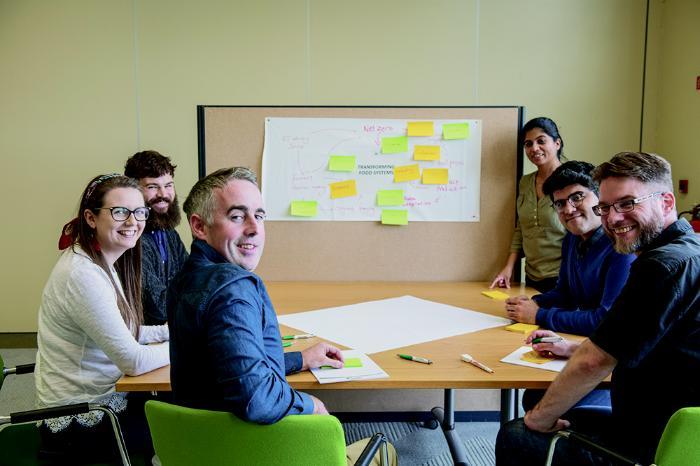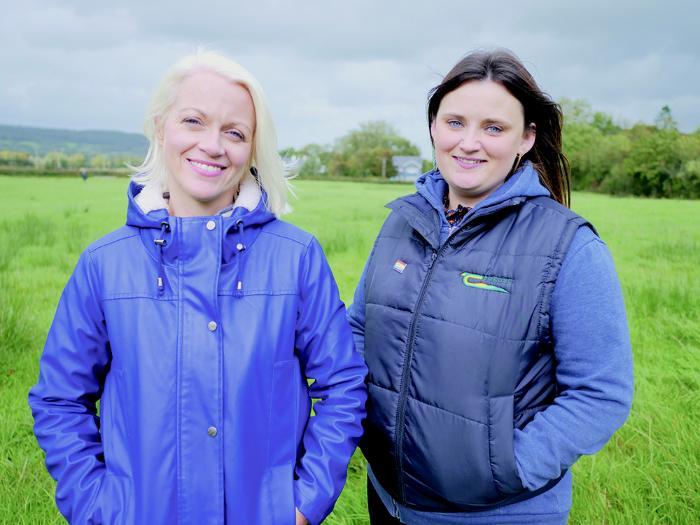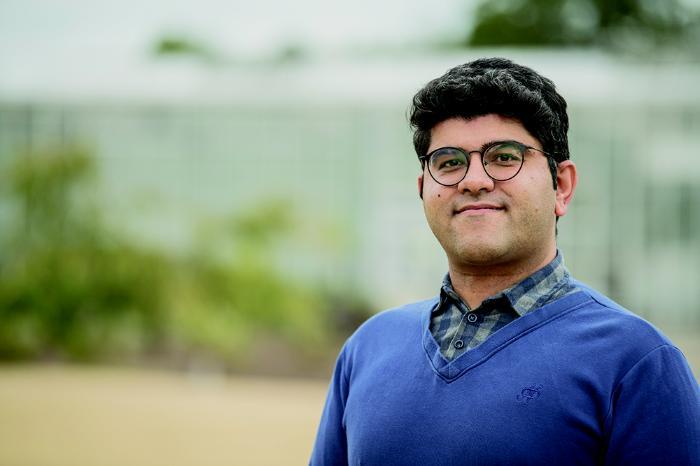18 November 2024
Empowering postdocs: Unlocking career potential
Teagasc’s Post-Doctoral Development Programme is helping scientists unlock their career potential. We meet some of the Fellows and find out how they have benefitted from the programme.
Mohammad Mohammadrzei (second from right) says that Teagasc’s postdoc programme enhanced his project management and leadership skills. Photo credit: Andrew Downes.
Embarking on a postdoctoral journey can be both exciting and challenging. Teagasc’s Professional Diploma in Researcher Development, launched in September 2022 in collaboration with University College Dublin (UCD), provides postdoctoral researchers with the skills and knowledge needed to advance their careers. This 30-credit, Level 9 qualification is designed for Postdoctoral Fellows (PD Fellows) to complete while carrying out their postdoctoral fellowship at Teagasc, offering them the tools to thrive in diverse career paths.
Jane Kavanagh, Head of Research Development and Walsh Scholarships, explains, “The diploma equips participants with a vital mix of research, leadership and professional skills that are essential for success in both academia and industry. For researchers eager to push their careers forward, this programme offers the perfect opportunity to combine research with career development.”
Holistic approach to growth
The Professional Diploma is structured around four key pillars: Research Skills, Professionalism and Communication, Leadership and Management, and Career Development. These pillars ensure participants develop a well-rounded skill set, helping them grow not only as researchers but also as future leaders in their fields.
The programme is led by UCD’s Julie Dowsett and managed by Teagasc’s Jane Kavanagh and Ann Kane. With three annual registration periods (January, May, and September), PD Fellows can begin the programme at the registration date closest to when they commence their fellowship. The diploma can be completed over 12 or 18 months, depending on the Fellow’s contract length, and integrates easily into their existing work schedules.
Currently 55 PD Fellows are enrolled in the programme, all of whom are completing the diploma alongside their research activities at Teagasc.
Flexibility and real-world application
The diploma’s flexible structure allows participants to balance professional development with their postdoctoral responsibilities, Jane continues.
“The course offers a mix of live sessions, pre-recorded materials and interactive workshops, delivered online and – where possible – in person at Teagasc locations. This hybrid model enables PD Fellows to engage with the material at their own pace.”
The assignments focus on practical applications, from enhancing CVs to creating professional development plans. Each task is designed to consolidate the skills and knowledge gained, helping participants apply what they learn directly to their career development. Regular tutorials ensure that PD Fellows have support throughout the programme.
Networking and career support
One of the programme’s key benefits is the opportunity to network with peers from across Teagasc. This interaction helps the Fellows build valuable connections and exchange ideas. Additionally, the programme includes one-on-one coaching sessions with career specialists, allowing participants to develop tailored plans for their professional growth.
The programme also prepares researchers for leadership roles, with modules on leadership and team management designed to build the skills necessary for managing projects and leading teams. Whether aiming for a role in academia, industry or another sector, the skills learned will be essential for career advancement.
Why apply?
Teagasc’s Professional Diploma in Researcher Development is an investment in the future of postdoctoral researchers. The programme not only provides participants with crucial skills but also helps them build networks and gain professional recognition, Jane concludes.
“With its flexible structure, practical focus, and expert support, it’s the perfect stepping stone for postdoctoral researchers ready to take the next step in their careers. If you’re ready to take that next step, apply for a postdoctoral fellowship at Teagasc and unlock your full potential.”
Meet our recent graduates
Teagasc’s Professional Diploma in Researcher Development has had a transformative impact on the careers of several postdoctoral researchers. Here, we showcase five graduates who have used the skills and knowledge from the programme to advance their research and professional trajectories.
Conor Bracken
Conor Bracken, now a Scientific Officer at the Environmental Protection Agency, found the Professional Diploma instrumental in refining his skills:
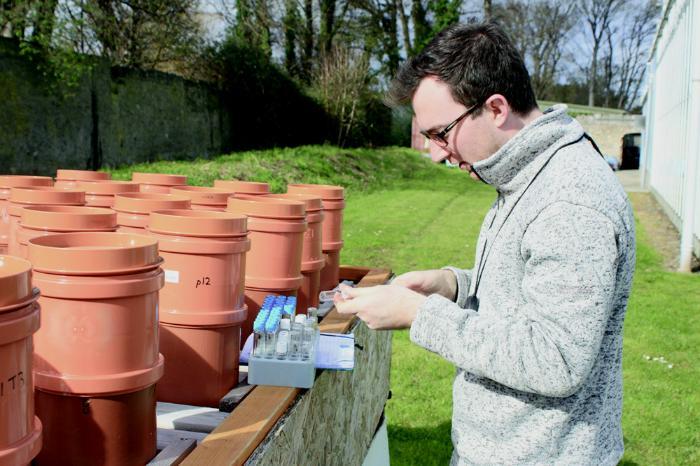
Photo credit: UCD
“The Professional Diploma covered many beneficial modules to further develop the transdisciplinary skills required for a research career.
“I enjoyed the structure of the module delivery, distilling large topics into useful information that could be directly implemented into our postdoc roles. The highlight for me was the range of expert speakers who passed on valuable insights and knowledge.”
While at Teagasc, Conor’s post-doctoral research focused on sustainable farming practices, specifically minimising nitrogen losses through improved soil fertility management.
Marie Conway
Marie Conway, an Assistant Lecturer in Nutrition & Physiology at Technological University Dublin, highlights the programme’s ability to foster professional growth:
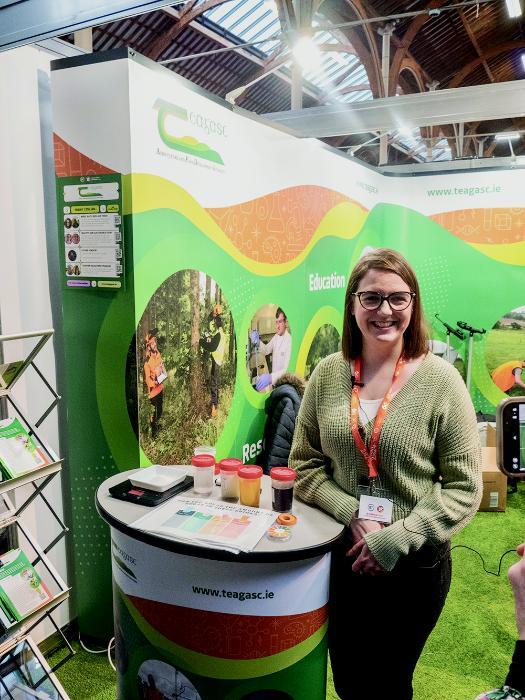
Photo credit: Teagasc
“The Professional Diploma provided learning opportunities in leadership, team management, science communication, and research career progression. It also allowed me to network with other postdoctoral researchers across Teagasc, expanding my network for future opportunities.”
As a Teagasc PD Fellow, Marie worked on the SuHeGuide project, a collaborative research initiative to create sustainable and healthy dietary guidelines. Her background in human nutrition led her to develop solutions that respect biodiversity and reduce the carbon footprint of food.
Shannon Gwala
Shannon Gwala, now a Maria Skłodowska-Curie Postdoctoral Fellow at the Moorepark Food Research Centre, works on the valorisation of mushroom proteins. She found the programme valuable in both her professional and personal development:
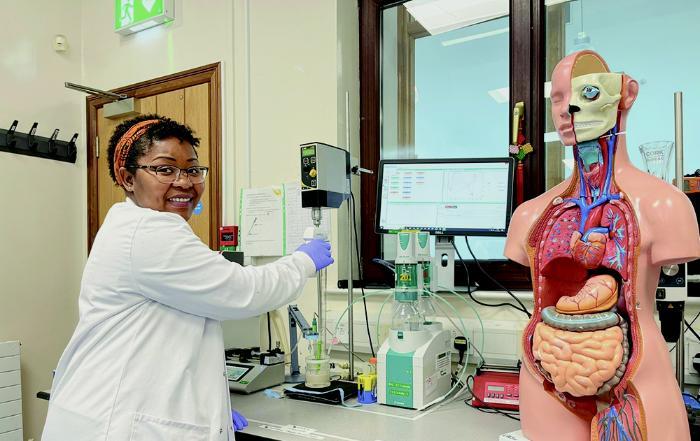
Photo credit: Teagasc
“Participating in the Professional Diploma provided me with tools to articulate and maximise the impact of my research.”
The UCD blueprint principles for supervision, taught in the Supervision and Mentoring course, were illuminating and will be valuable as I embark on new responsibilities requiring me to oversee students at various levels. On a personal level, it was fascinating to learn about my personality in terms of leadership styles and how they fit and apply in various scenarios.”
Shannon’s research focuses on protein-enriched food prototypes for older adults, improving their digestibility and texture.
Rebecca Hall
Rebecca Hall, a Research Officer with the Agricultural Catchments Programme, found the diploma highly beneficial for career advancement:
Photo credit: New Decade TV. Rebecca Hall (right) with presenter Kathriona Devereux for an episode of RTÉ’s 10 Things to Know About…
“The course was very well-planned, enjoyable, and informative. The modules covered a range of essential topics, including research development, leadership, and scientific writing. A notable benefit was the free sessions with a recruiter to improve my CV and professional profiles.”
Rebecca’s research during her postdoctoral fellowship focused on phosphorus analysis in soils, contributing to better nutrient management practices.
Mohammad Mohammadrzaei
Specialising in agricultural extension and education, Mohammad Mohammadrzaei applied the programme’s lessons to enhance his research’s impact:
Photo credit: Andrew Downes
“Participating in the Professional Diploma programme during my post-doc, I enhanced and applied research project management skills such as time management, leadership, and stakeholder mapping. I also learned how to effectively utilise various communication channels provided by Teagasc to maximise the impact of my research.”
Now a Behavioural Science Research Officer at the Teagasc Climate Centre, Mohammad’s research focuses on behaviour change and decision-making related to adaptation and mitigation strategies.
Contributors
Jane Kavanagh, Head of Research Development and Walsh Scholarships, Teagasc Oak Park.
jane.kavanagh@teagasc.ie
Eimear Ferguson, Science Communication Officer, Teagasc Moorepark
Are you ready to take the next step in your career? Apply for a postdoctoral fellowship at Teagasc today and unlock your full potential

